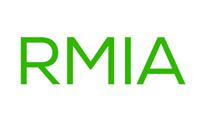Risk Management in 2025: What’s Required and How We Prepare
Simon Levy
Chief Executive Officer, Risk Management Institute Australasia (RMIA)
LinkedIn: https://www.linkedin.com/in/simon-levy-gaicd-mrmia-2862068/
Risk Management in 2025: What’s Required and How We Prepare
Every year, the Global Risks Report provides a snapshot of the forces shaping our world. Traditionally, my approach to reviewing this report has been observational—highlighting key risks and trends. But observation alone is no longer enough. The pace of change has accelerated, and risks are no longer isolated events; they are interconnected and systemic. A passive understanding of emerging threats does not equip professionals to anticipate, adapt, and respond effectively. Boards and executives are looking for risk professionals who can translate risk insights into concrete strategies that drive resilience, rather than simply identify challenges after they have materialised. 2025 is not a year for passive awareness. It’s a year where risk professionals must lead.
So, what does that look like in practice? What competencies, behaviours, and skills do risk professionals need to develop? And how do we ensure the profession is ready for what’s next?
The Risks That Matter in 2025
The Global Risks Report 2025 highlights three dominant themes:
Geopolitical Uncertainty – Conflict, economic fragmentation, and shifting global alliances are creating unpredictability for businesses.
Environmental Acceleration – Climate risks, extreme weather, and biodiversity loss are no longer distant concerns—they are immediate business threats.
Technological Disruption and Misinformation – AI, cybersecurity, and the rapid evolution of digital threats demand new ways of managing risk.
For risk professionals, understanding these risks is just the beginning. The real work lies in translating them into action—embedding risk intelligence into strategy, supporting decision-makers, and ensuring organisations remain resilient.
While these risks are critical for Australian businesses, they are equally relevant to organisations in New Zealand. The interconnected nature of global risks means that geopolitical tensions, climate change impacts, and technological vulnerabilities affect both sides of the Tasman. Risk professionals in New Zealand face similar challenges in adapting to regulatory changes, environmental pressures, and digital threats, making a proactive and collaborative approach essential.
The Competencies Risk Professionals Need in 2025
To be effective, risk professionals in Australasia must develop a set of applied skills that go beyond traditional risk methodologies.
Geopolitical Acumen
Why it’s critical: Organisations must anticipate global instability and its impact on supply chains, operations, and investment.
How to develop it: Stay informed, engage with geopolitical analysts, and integrate scenario planning into business strategy.
Environmental Risk Management
Why it’s critical: Climate risks are now financial risks, and regulation is increasing.
How to develop it: Conduct climate risk assessments, strengthen ESG reporting, and integrate sustainability into enterprise risk management.
Technological Proficiency
Why it’s critical: AI governance, cyber resilience, and digital misinformation are reshaping risk landscapes.
How to develop it: Collaborate with IT teams, stay ahead of regulatory changes, and strengthen cybersecurity frameworks.
Analytical and Quantitative Skills
Why it’s critical: Risk decisions must be data-driven and defensible.
How to develop it: Use statistical tools, develop scenario modelling, and communicate insights with clarity.
Strategic Communication
Why it’s critical: Risk professionals must influence decisions, not just report findings.
How to develop it: Provide concise executive-level insights, explain risk-reward trade-offs, and foster open dialogue with leadership teams.
Adaptability and Learning Agility
Why it’s critical: The risk landscape is evolving too quickly for static knowledge to be enough.
How to develop it: Invest in professional development, participate in industry networks, and engage with emerging risk research.
Ethical Judgment and Integrity
Why it’s critical: As AI, misinformation, and compliance complexity increase, ethical risk leadership is a differentiator.
How to develop it: Advocate for ethical risk frameworks, promote transparency, and ensure integrity in risk assessments.
Building the Profession to Meet the Challenge
The risk profession is evolving. The skills needed in 2025 are not the same as those of previous years. This means risk professionals must be deliberate in how they develop their expertise and ensure they are fit for purpose in a world where risk is more complex, interconnected, and urgent.
As we move forward, our role at RMIA is to support this evolution—not as a sales pitch, but as a recognition that the risk profession must be proactive in shaping its own future. RMIA is positioned to support risk professionals through:
Certification pathways that develop foundational to executive-level risk management expertise.
Professional development opportunities tailored to the evolving needs of the industry.
Thought leadership and research that informs best practice and future trends.
Networking and industry engagement that fosters collaboration and shared insights across both Australia and New Zealand.
Education, certification, and capability-building are essential, not as a box-ticking exercise, but as a means to ensure that risk professionals remain relevant, influential, and equipped for what’s ahead.
Risk is no longer just a technical discipline—it’s a leadership function. The question for every risk professional in Australasia is: are you prepared for what’s next?

